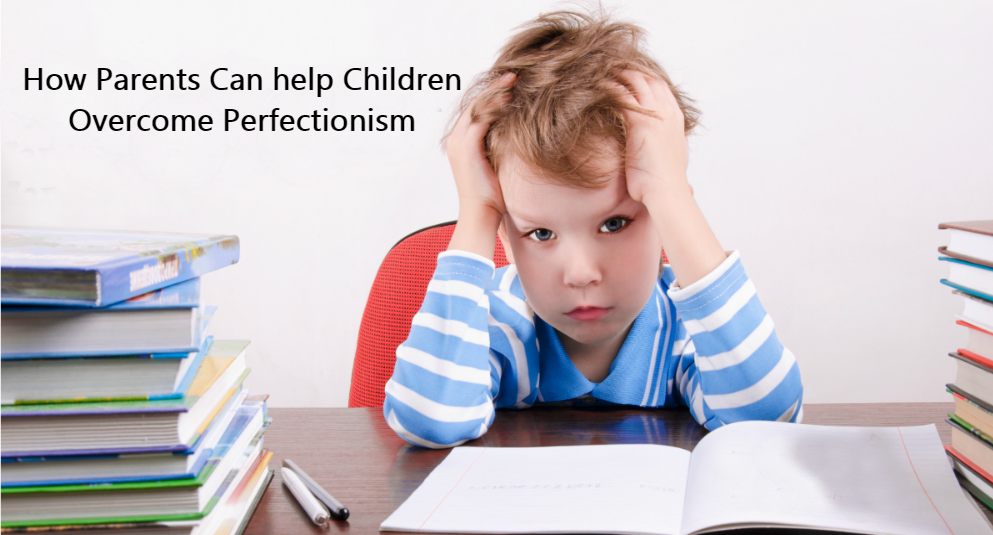Perfectionism in Kids and How Parents Can help Children Overcome Perfectionism


Scholarly researches on perfectionism have pointed out that two kinds of perfectionism exists in children:-
- Healthy Perfectionism at the rate of 41.7%
- Dysfunctional Perfectionist at the rate of 25.5%
What makes them like this?
- Perfectionism may be Inborn- Gifted children belong to this category. And which parent would mind having one.
The Problem arises when children refuse to attempt a new assignment, they may not complete work as they fear that it will not be done flawlessly or as per their high expectations of themselves.
- Environmental factors also contribute big time to perfectionism – Some such factors include Authority figures (parents, grandparents, teachers etc) modelling perfectionism, Parents love is conditioned to big achievements, Observation of Perfectionist adults in home or in school or other close-knit environments, early experience of messages received from high performing adults, and lofty ideas about achievements/success as major milestones.
WHAT ARE THE QUALITIES OF PERFECTIONIST CHILDREN?
- A perfectly neat desk in class/at home;
- Super tidy room;
- Planned and well researched Home works/assignments/projects; and
- Best of themselves at all times.
Again no prizes on guessing that all this can be effort intensive and time consuming leading to wee bit anxiety and restlessness.
WHAT ELSE CAN GO WRONG WITH THIS?
A perfectionist can be a prey to some or many of the below issues:-
- Rigid and fixed thinking on Intelligence or Performance;
- Strong negative focus and discounted positives (for example-“I always do bad in X subject”; “I am good in nothing” etc)
- Higher chances of distorted understanding of reality and extremes in faulty connections of episodes in life. (For example- “The teacher did not take me for a particular activity means that I am good for nothing”, or “I am always being neglected” etc
- Overgeneralise failure (for example- “Bad marks means I will never do well”!)
- Black & White thinking (for example-“If I commit an error I will be a failure and doomed”!)
Not to mention that each and every aspect only initiates a downward spiral of worry and fears that if allowed to sit there can lead to bigger psychological issues.
EFFECTIVE WAYS PARENTS CAN HELP
Some very simple things can be a game-changer in case you have a perfectionist in a kid .
- Admit making mistakes & share constructive coping skills;
- Provide calm, uncluttered and structured environment;
- Create and empower with success inducing strategies to enhance their self-confidence;
- Comment on child’s strength & accomplishment. Do this privately as appropriate & have constructive criticism.
- Comparisons should be avoided;
- If possible; think of balancing their academic pressure with other less competitive pursuits;
- Use effective and empathetic listening & communication skills to talk to them;
- Challenge their behaviour when they feel they are a failure& help see it more balanced light;
- Help them to understand that it is impossible to finish all tasks without making a mistake. And that a mistake only helps one learn better.
- Teach them strategies to revise, stand again and learn from their mistakes;
- Challenge and reward them to do challenging tasks & support even if they underperform;
- Saying ‘admirable work’ works more than perfect or brilliant work; Superlatives need to wait in case of a perfectionist.
- Support them to be comfortable with vague, ambiguous situation. Handhold them and share your wisdom in such scenarios;
- For those who procrastinate due to perfectionism emphasize to change the goal from perfection to completion.
- Teach them to break the big goals into small goals & Prioritize & manage work chunk size.
- Let them read biographies of successful people, who overcomes failure; & achieved greatness; A. Lincoln, Helen Keller, Albert Einstein and many more.
- Help develop positive self-talk;
- Help them learn ways to cope with negative self-criticism or criticism from others by not taking it personally and by asking themselves-“what’s good in this for me?”.
- RELAXATION TECHNIQUES- Meditation, walking, exercises, hobbies, reading are a must do for a perfectionist;
- Teach them problem solving; and that problems are the stepping stones to learning;
- Help them enlist what they can control and what they can not to get perspective;
- Have them discuss or examine pros/cons of perfectionism as a casual discussion;
- Writing a Journal to experience their thoughts and feelings;
- Let them see that saying bad things about themselves will affect their ‘social development’& overall well- being;
- Generosity of comments towards peers; teachers & others work;
- Group work promotes constructive peer interaction and teach them to be open minded around new mindset;
Let’s accept that the behaviour of a perfectionist is driven by thoughts out of their awareness. This child feels that the efforts of failure are dreadful.
Awareness is crucial, imagine you walk in a room with no light…. Your chances of bumping into things are high. But when you switch on the light; the things are still there; but you can navigate well.
Kids are powerful when made mindful, self-aware & taught self-talk.
Just to sum up,
Parents need to be reminded to give unconditional love & respect;
Too much pressure on being perfect will be bad to child’s emotional well-being& to their self-concepts like esteem and confidence.
Parents should accept their own errors of judgement or actions and accept child’s mistakes
Encourage and acknowledge the big feeling of the child especially frustration & anxiety. If not attached to it will lead to depression & other psychological issues.
Let them understand high standards are achieved as a process as in excellence and not merely by being a perfectionist.
Help them use coping skills and power of perseverance while dealing with disappointments.
Let them assess their levels of completeness & decrease their tunnel vision on winning
Sibling comparisons is a big blunder and best avoided.
If the child has difficulty expressing his concern parent can use Journal Exchange. Like a parent can write a thought & child responds. This help sort clear emotions, strengthen bond.
Perfectionism can be very rewarding in general but when we assess it from the viewpoint of being calmer, content and collected, it loses out to chaos, competitiveness and craving for more and more because ‘ enough is never enough’!!







